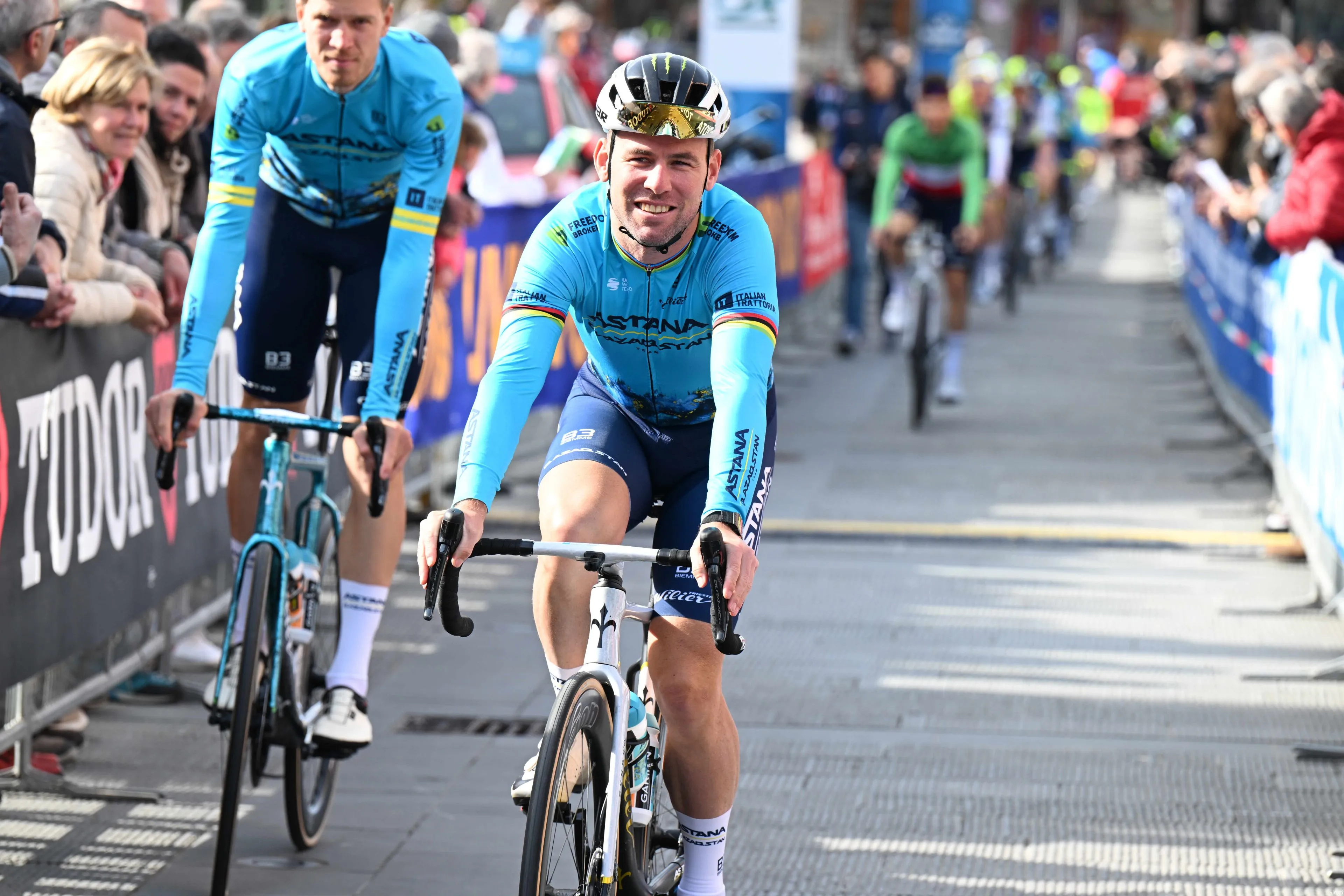
Last week saw a new edition of the Tour de Suisse in the Alps, attracting many climbers due to the numerous elevation gains that were on the menu almost every day. However, a closer look at the participants list also revealed several sprinters. Why?
Bryan Coquard, representing Cofidis, won the first stage, beating Michael Matthews of Jayco AlUla. Arnaud De Lie (Lotto-Dstny) was also in contention that day, though a chain issue hindered his chances for victory. Yet, none of them can be truly defined as pure sprinters.
We also noted the presence of Pascal Ackermann and his lead-out Michael Schwarzmann for Israel-Premier Tech, Arkéa - B&B Hotels’ hopeful Arnaud Démare, BORA-hansgrohe’s Jordi Meeus, and the full sprint train of Astana Qazaqstan Team for Mark Cavendish, including Michael Morkov and Cees Bol. And let's not forget Marijn van den Berg (EF) and Axel Laurance (Alpecin-Deceuninck), both capable climbers who might ride the Tour.
We asked Bol about their participation. "Training is why we are here. It’s not difficult. It’s nice to race in the final, but that’s not possible for us here. The first day there was a chance, but it didn’t work out. Overall, we know why we are here," said the Dutchman.
Continue reading below the photo.
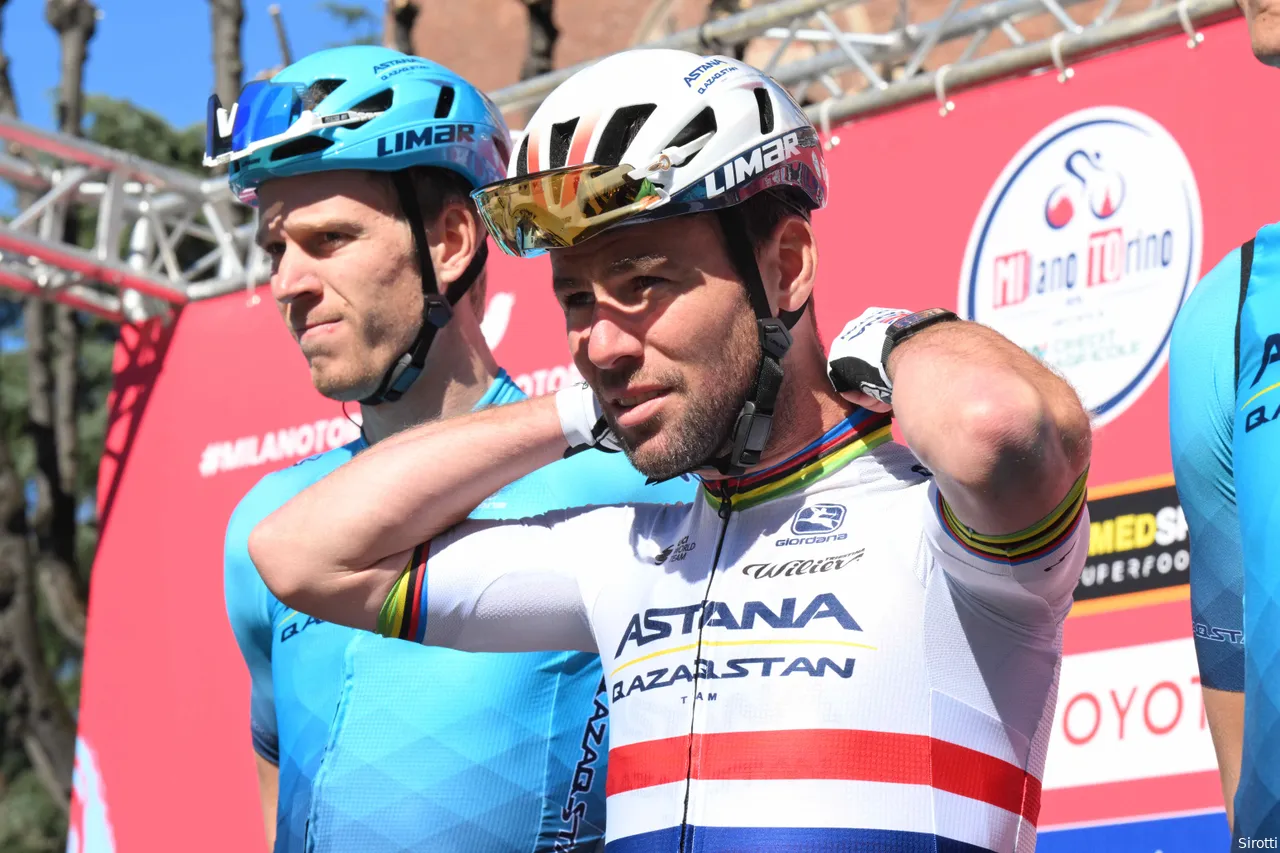
Cavendish is aiming for his 35th stage win in July, but the days when there were four sprint opportunities in the first week are over. "The Tour starts off very tough again, so it’s just good to start with strong climbing legs. We need to be ready, and it’s looking good so far," Bol explained, noting that his sprinter Cavendish handled the mountains well.
"We got through it relatively well," Cavendish himself said. "Of course, it was never going to be a race full of stage wins for me and my sprint group, but I’m pleased with how we and the sprinter’s group performed. We did well on a tough course, and it’s good preparation for the Tour de France. I’m very happy with it."
Good climbing and race rhythm are crucial for sprinters heading into the Tour
Bol also managed to climb well, as he explained. "The form is there. We had a good altitude camp. It’s hard to really measure form in Switzerland, but I feel good. We still have some days — and the Dutch National Championships — to do some specific work. I have ambitions for the Nationals, but it’s always a tough race. There are a few big teams at the start, so the responsibility will lie with them. Then comes the Tour, with me, Mark and Michael as a clear group. Is there extra pressure? The Tour is always exciting," Bol said confidently.
Van den Berg also rode the Swiss race mainly to fine-tune for the Tour. "I’m closing the Tour de Suisse on a positive note. It was about working on my form. I had some bad luck on the first day, which was unfortunate. After that, I turned it into a good training session, so that’s great."
Some other sprinters chose different paths: Gerben Thijssen (Intermarché-Wanty), Jasper Philipsen (Alpecin-Deceuninck) and Fabio Jakobsen (DSM-Firmenich PostNL) competed in the Baloise Belgium Tour, while Mads Pedersen (Lidl-Trek) and Sam Bennett (Decathlon AG2R) chose the Critérium du Dauphiné. Dylan Groenewegen (Jayco AlUla) and Phil Bauhaus (Bahrain Victorious) opted for the Tour of Slovenia. Essentially, no sprinters are heading to France unprepared, unless we count Wout van Aert in that category.
Continue reading below the photo.
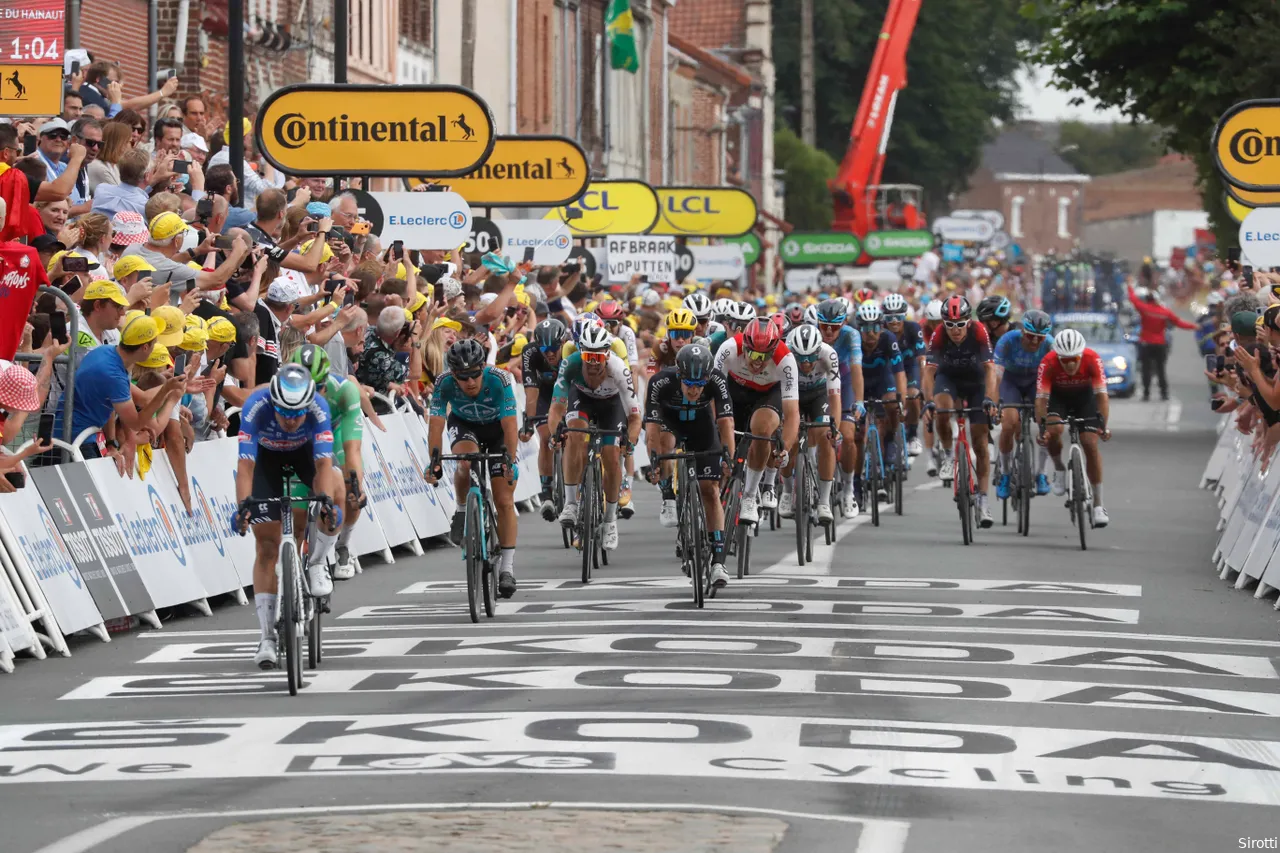
Jakobsen trained in Spain, Philipsen in Tenerife and La Plagne
Like Cavendish, Jakobsen focused on endurance leading up to the Tour. "Literally more cycling and more focus on going from A to B, so I have more left in the final kilometers," he described his training in Spain. "We shouldn’t just focus on those last ten, fifteen or thirty seconds because a race is ultimately four or five hours plus a sprint. It’s a matter of fine-tuning. You don’t suddenly go from two to six hours. It’s in the details."
At Alpecin-Deceuninck (Philipsen), they chose the same path as for the successful 2023 season. "We basically followed the same approach as last year," said the Belgian. "I first trained in Tenerife, where I completed the necessary altitude meters, and then we went to La Plagne for an altitude camp with the team."
"From there, we actually went straight to the Baloise Belgium Tour, so we haven't been idle. I always need that race rhythm. It's good to race for five days now to aim for victory and to automate certain things. Heading towards the Tour, we have worked on peak form," said the defending champion, who, just like last year in Bilbao, will now spend the first few days in Florence getting into the rhythm.
Tour Down Under

📸 Van der Hoorn does some soul searching in New Zealand with an impressive two-week journey

Participants Tour Down Under 2025 | UAE Team Emirates-XRG to debut four riders in Australia!

Preview Tour Down Under 2025 | WorldTour riders like kangaroos: read to jump-start!

Visma | Lease a Bike forced to make last-minute change for Tour Down Under, Vermote will participate

Drama surrounding Caleb Ewan: Sprint star has suddenly been removed from the Jayco AlUla website
Latest Cycling News

Dutch riders from Visma | Lease a Bike not in the Tour, and the bikes of Van Baarle and Campenaerts play a role in this

Matteo Jorgenson has taken another step forward and that results in 3 goals for 2025

Olav Kooij increasingly aims for the big races: "That seems a very nice step"

How Jonas Vingegaard believes he can challenge Tadej Pogacar in 2025 precisely because of his heavy crash

Classics, Giro, and Tour, with personal and shared ambitions: Wout van Aert knows 2025 will be busy year
Popular Cycling News

Pidcock’s younger brother shares emotional message: "It was like having to learn everything in life at 21"

How Jonas Vingegaard believes he can challenge Tadej Pogacar in 2025 precisely because of his heavy crash

Meanwhile in the peloton | Pidcock and Alaphilippe receive wildcards for Omloop, Unibet Tietema Rockets also present

Dutch riders from Visma | Lease a Bike not in the Tour, and the bikes of Van Baarle and Campenaerts play a role in this

Pidcock finally responds to INEOS exit and skipping the Tour in 2025: "Glad to have a year of rest"
Latest Comments
- If she thinks talent alone will put her there she will not see many podium finishes much less a GC finish.....work as a team utilizing tactics to consistently be at the top.Germanrazor10-01-2025
- This was very informative! Luiz Antonio Duarte Ferreiraluizantonioduarteferreira02-01-2025
- Well explained, thanks for the clarity! Daniel DantasDanieldantas20-12-2024
- This is the kind of 'news' that belongs in a cheap tabloid. No matter how boring the offseason gets, nobody wants to read this.
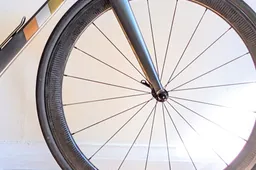 santiagobenites19-12-2024
santiagobenites19-12-2024 - I wish we could have seen him try. He'd absolutely get dropped before Pogi overtakes his domestiquesVeganpotter10-12-2024
- Talk is cheap! Next year barring crashes with a healthy team... all well be on track! Some need to talk to make a headline!mootman27-11-2024
- I do not see this event listed on HBO Max Sports Online? Can anyone confirm? Thanks!
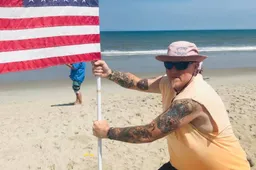 MrYuck23-11-2024
MrYuck23-11-2024 - It seemed that he was focusing forward at the time of the crash, after seeing a quick video snippet. But one thing I think he should focus on more intently is breaking a bad habit he has, right now. And that is his constant looking over his shoulders. He does that so much, that I am very sure it is not good for him. Simply watch videos of the greats of CX and you will see very little of that constant looking over their shoulders. That is a behavior that betrays a bit of insecurity on his part. He shouldn't be so concerned, incessantly, about what is over his shoulder. He needn't worry they didn't all disappear. He neds to keep his focus more ahead of himself, and he needs to pay a bit more attention to himself, in a confident manner. It is very frustrating to watch, because it is apparent that he has a lot of potential, and is in much better shape thwan many of his competitors, but the mental game needs to be sharpened more, because that part of strategy plays a huge part in the final results
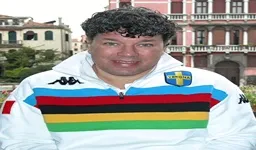 reemmo022-11-2024
reemmo022-11-2024 - hahahaha love this shit! I didnt even watched the race, but reading all the gossip articles of how stupid this is!Zatoichi19-11-2024
- Van Aert is really handsome. He can influence me all day! Ditto for Philipsen. Why do you think many of us love cycling?: to see heroic attempts at climbing mountains at high altitudes or to watch speedsters sprint for the finish line or to watch a human being ride at break neck speed down a tricky descent? No, it's all about their lean physiques and muscular legs. (apologies for objectifying these dedicated and amazing athletes).BarwonHeadsUp25-10-2024